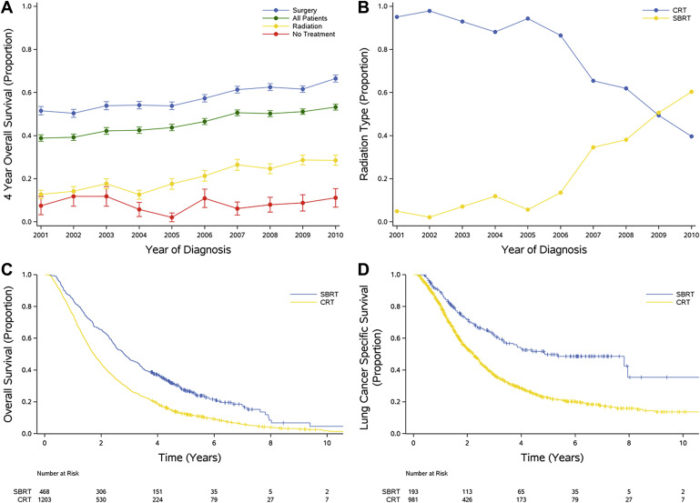CHICAGO—The profusion of data available through electronic health records and genomic analyses can guide lung cancer treatment—if clinicians can access key points quickly enough. Researchers at the Boston VAMC and their colleagues found a way to sort through all the information to develop a highly accurate model that predicted one-year survival in patients newly diagnosed with non-small cell lung cancer.
The researchers presented their model and results on June 3 at the 2019 American Society for Clinical Oncology Annual Meeting in Chicago.1
The Boston-based team combined real-world electronic health record, cancer registry and tumor sequencing data from the VA Precision Oncology Data Repository for 356 veterans recently diagnosed with NSCLC.
The veterans had a mean age at diagnosis of 66 years, and 44% had metastatic disease. Nearly 60% of patients received systemic therapy. One year from diagnosis, 55% were still alive, and 45% had died.
The defined 41 features that reflected 15 baseline clinical and demographic characteristics found in the EHR and registry, including age, race, disease stage, histology and therapy. They then defined features that would identify 206 clinically actionable somatic variants of NSCLC. Five of the most important variants were included in the model, along with the total number of mutations.
The team trained a random forest algorithm to predict one-year survival in the patients. Precision, recall and area under the ROC curve all approached 80% using fivefold cross-validation, indicating the model effectively combined clinical and genomic features to predict one-year survival.
The implications of more accurate prediction of survival are significant. “Such a model, after ongoing validation in a larger cohort, offers the ability to make individualized predictions that could inform patient care to improve outcomes,” the researchers concluded.

1 Fillmore N, Ramos-Cejudo J, Cheng D, Tuck DP, Sheikh AR, et al. A predictive model for survival in non-small cell lung cancer based on electronic health record and tumor sequencing data at the Department of Veterans Affairs. J Clin Oncol 37, 2019 (suppl; abstr 109).
